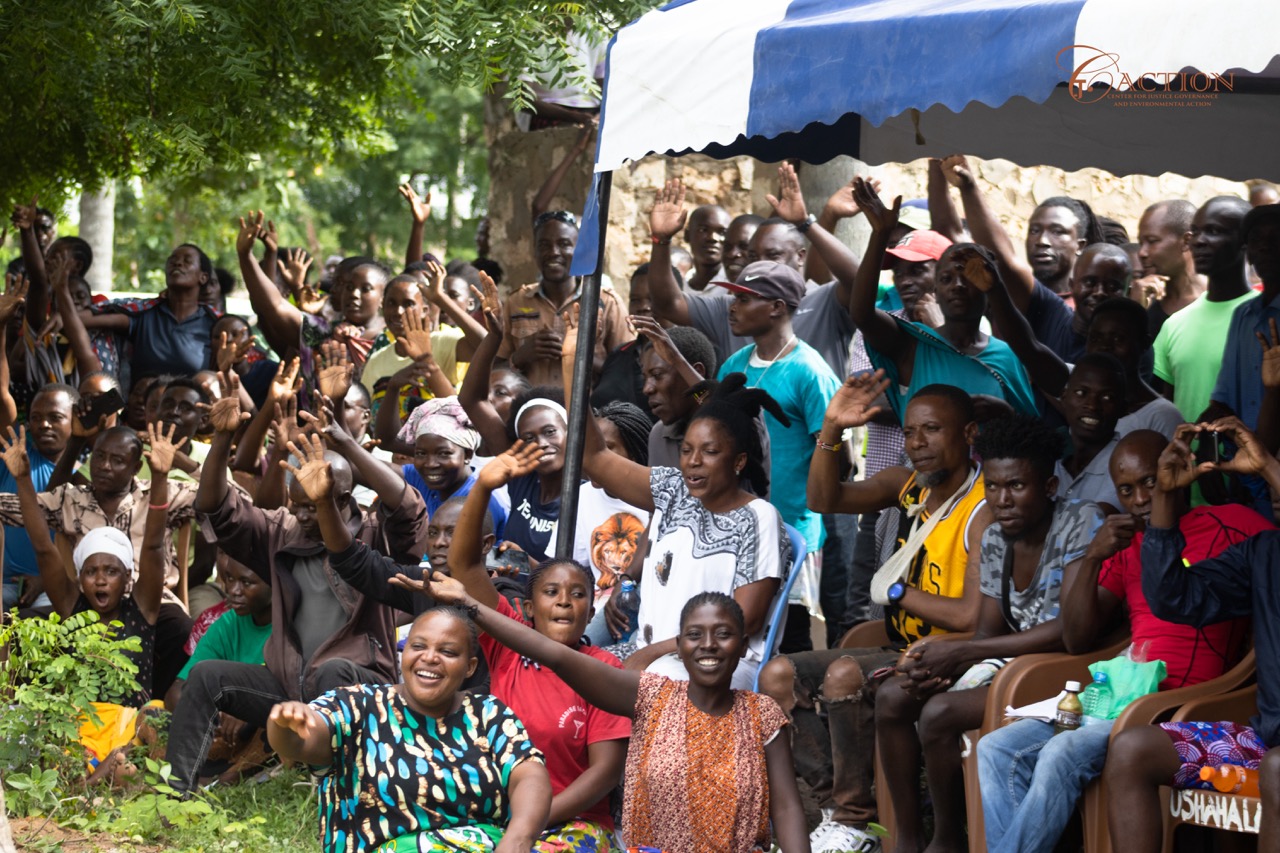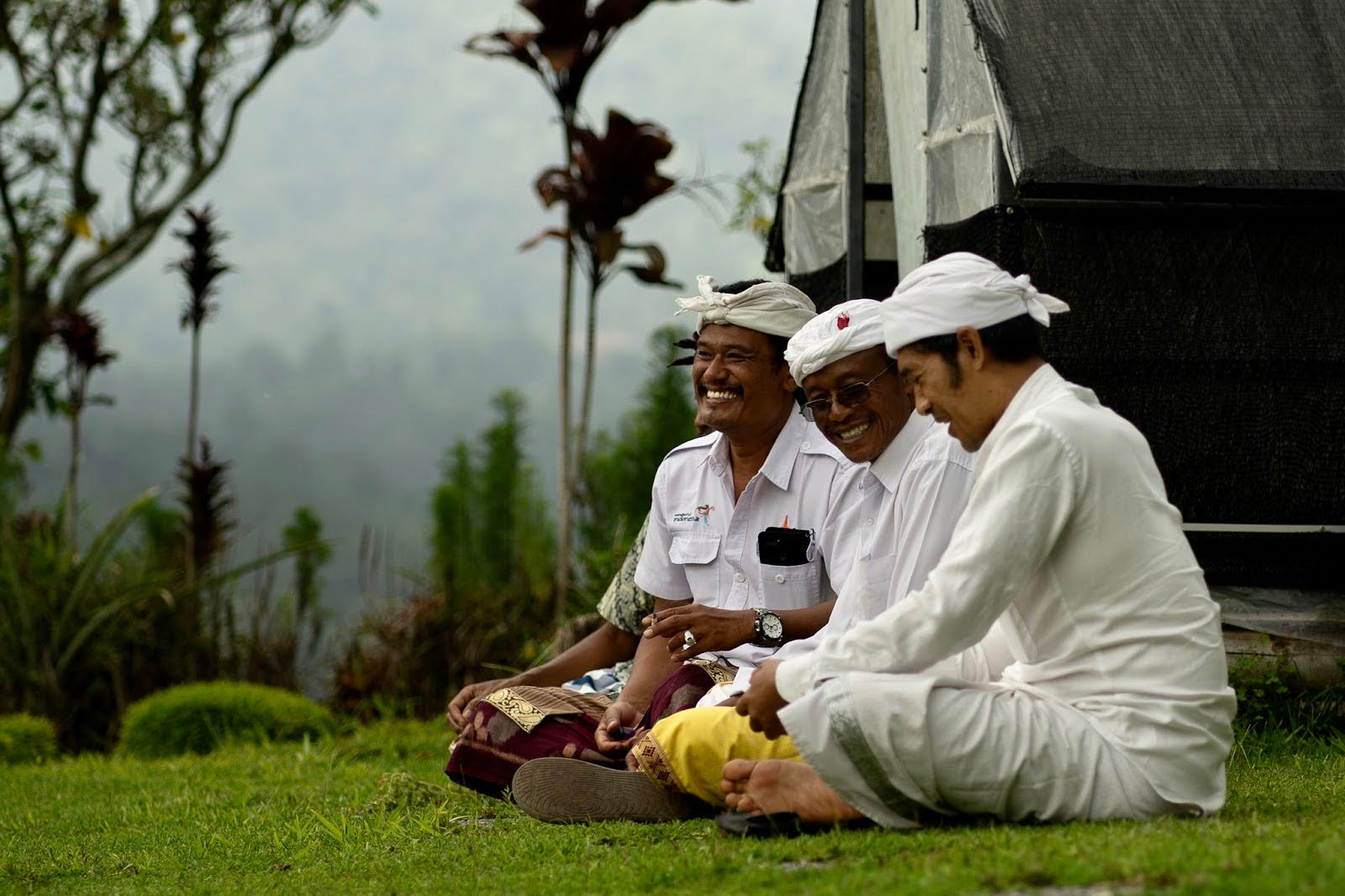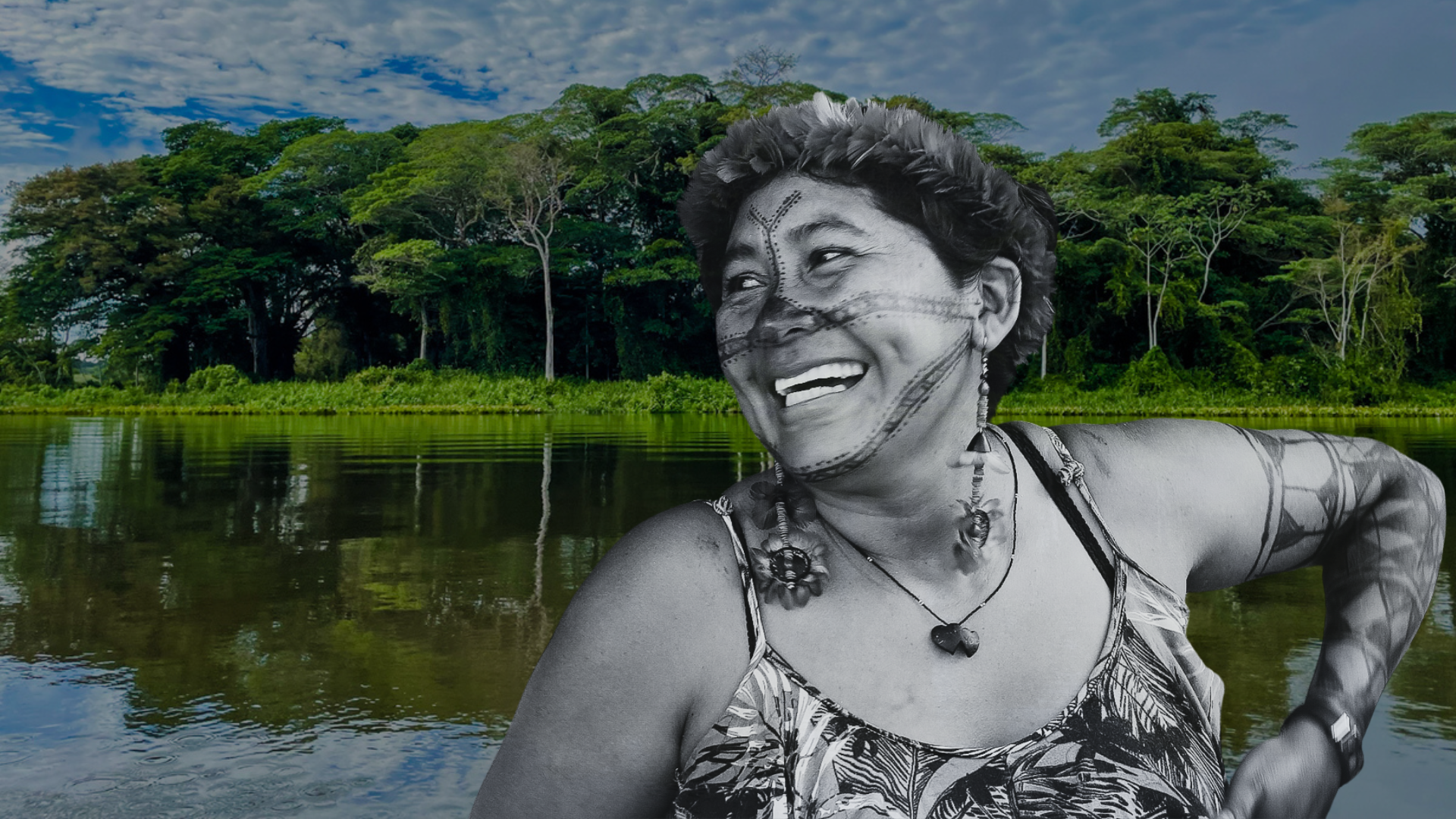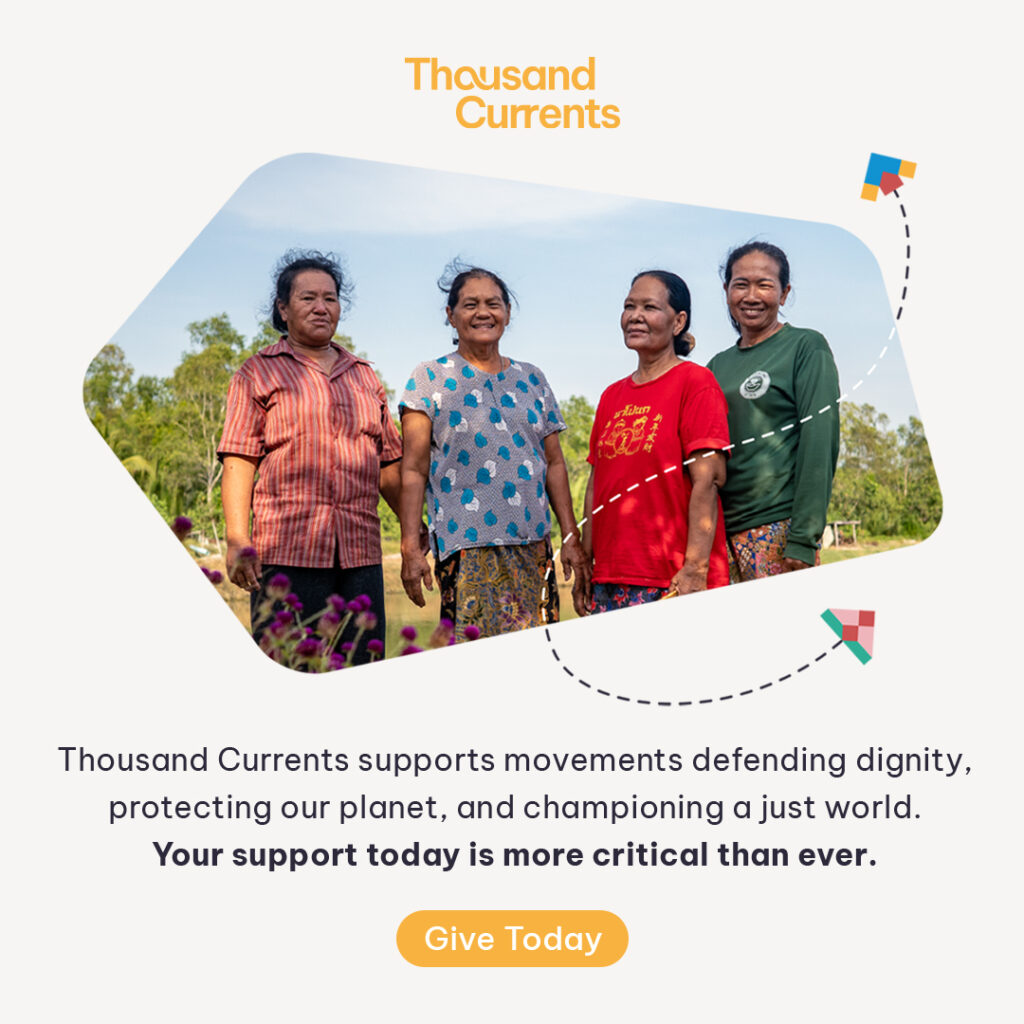Fighting for a healthy future in South Africa
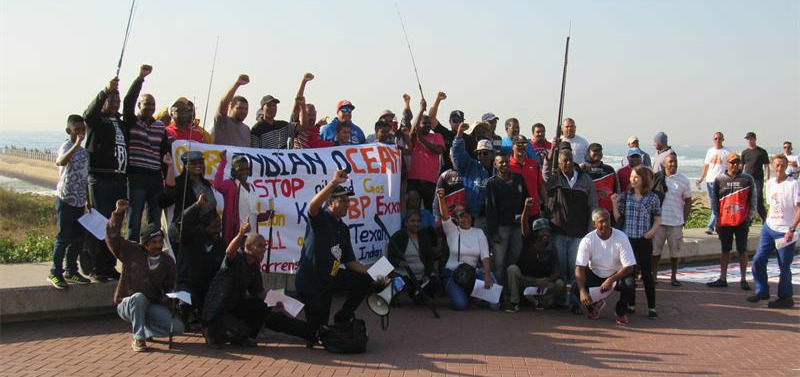
The 2014 Goldman Environmental Prize Winner and current Coordinator of the South Durban Community Environmental Alliance, Thousand Currents partner Desmond D’Sa delivered a powerful address at the Environmental Grantmakers Association conference held in Napa, California, in September 2019. Sharing the realities that the South Durban community is confronting because of polluting corporations, D’Sa urged funders to drastically and boldly shift their practices to support grassroots-driven climate solutions. The following passage has been edited for clarity and flow by Desmond D’Sa for print.
***
How did we get here? How did we get into this situation? In South Africa, mining came about during colonization and the anti-apartheid struggle. The wealth of this country—gold, diamonds, coal mining, platinum, and other types of mining—was built on the backs of miners, particularly Black miners.
And did the people benefit from it? People were brought in from all parts of the country and from neighboring countries like Lesotho, Mozambique, Zambia, and Zimbabwe to work in the mines in South Africa. For the corporations, their ultimate goal was low production cost. The mining companies contaminated waters, all the drinking water in Johannesburg. The black dust in the air, caused by coal mining, entered through the worker’s lungs, and diamond mining was no better. Then everything was shipped out, including all the profits, resulting in the situation we still have in the country: poverty and inequality. Today, the tears for the Marikana Massacre still flow throughout South Africa, where 34 miners were killed on the order of the major mining company, Lonmin. People have not forgotten it.
So where are we today? What brings me here? What brings me to the U.S.? And what brings me to share the challenges that we are facing?
I live in the shadow of the biggest petrochemical and chemical storage facilities in the Global South and on the continent, facilities that belong to massive refineries and chemical companies. And that the pollution caused by the facilities is what we breathe. These are the latest vultures. And again, what is the benefit of all this? I live among asthma, cancer, and leukemia, a high unemployment rate—where 40% of Black youth are still unemployed in the country. There is no benefit.
I just got back from the Niger Delta in Nigeria. The Royal Dutch Shell Company has been there polluting for a decade. Around the entire Delta, people have to walk miles for clean running water to drink and to cook with because the entire river is flooded with crude oil. The entire land has been destroyed. Shell is struggling to clean up the area because the devastation to the area is so massive, but the cleanup attempts are just a charade, a charade masking them trying to get back into the Niger Delta to continue doing business. And the people are saying no to this, and I support that.
The critical thing we need to pay attention to is the daily oil and gas exploration happening in all our green areas and in our oceans.
We have beautiful beaches in South Africa, especially where I come from in Durban—lovely beaches where people surf and come for recreation and healing, and many of our people use the ocean to cure illnesses. We also have a huge population of subsistence fisherfolk who live off of the sea that use fishing to pay for their families’ schooling. But the oceans have been sold off by our last president. South Africa is in a moment where a massive inquiry on corporate capture is ongoing. Corporate capture, the biggest scandal ever, is when governments are captured by multinational corporations—like we’ve seen in the U.S. We’ve seen the overwhelmingly negative results of this in other parts of the world when governments are captured by corporations.
Our coastal land is beautiful. It is a source of many jobs, yet the green areas have all been designated for oil and gas. One of the big oil corporations that is bullying communities is Sasol Limited, the state oil corporation from the apartheid era that was privatized just before the democratic elections. They want to draw more oil and gas. Three weeks ago, they were given permission to proceed with that extraction of oil and gas. We’ve heard from others who are here at the conference about ExxonMobil, Shell, and BP devastating coastlines and about the Texan barons, who have lots of money suddenly, who are bulldozing open roads all over South Africa and all over the continent of Africa to get to oil. They are now getting into Cameroon, the Democractic Republic of the Congo, Kenya, Senegal, and Uganda. Nothing has been left in the areas where they’ve searched for oil except for devastation. Oil and gas are the biggest risks and the biggest dangers to our future.
Companies’ and governments’ thirst for oil is huge. We are facing the consequence of this thirst around the world. It’s up to us as people, those of us who understand the destruction of colonization, to continue resisting. Extraction and exploitation of the earth will never benefit you, me, people of color, or anybody for that matter. When political officials are asked how many jobs these oil and gas projects will produce for the country, the answer is usually something like they might produce something small like five expert jobs, five jobs which in reality won’t even employ South Africans, let alone people from my communities. So what’s going to happen? We will end up working to cook their food and wash their clothing. Those will be the only types of jobs that they will create. These systems will never improve or deal with the actual problem of inequality.
Being in California this week, in San Francisco, I was excited about being able to attend the Climate Strike, which also made me excited for the movement happening back home. The youth are galvanized all over. Those that push for status quo environmental justice talk that is not political, talk that will never change the majority of Black people’s lives, are now understanding that people are learning and seeing the holes in what they’re proposing. People have got their own solutions. I’m hoping that those of us who were a part of this massive four million people that marched at Climate Strike will continue to build on that—an environmental movement that is political, youth led, and actually considers and is shaped by the realities of Black people and oppressed peoples from around the world.
Please stand with us. Do not say, “It’s not in my backyard but in someone else’s backyard.” This beast is huge. We need to confront it head-on. Let us not find ways that are going to divide us. Let us find an inclusive way that brings everybody on board. The young people are restless. They are not going to wait. They are restless, and they want to do something about it. Let us support it.
With oil and gas mining, we heard the story of the threats to life, of how people have been killed because they are standing up and saying no to mining, saying no to the colonizing, saying no to the commons being taken from them. It’s the same story all over the world. It’s the same story on the continent. The corporations and governments want us to move and take the land away from us, what we call a land grab—the biggest theft of land by removing the people from their homes. This means that food security for those impoverished people will be threatened. Water security will be threatened. We do not want mines that are going to contaminate our waters. We do not want any mines anywhere in the world. We want to ensure that our families and our children are living and what we’re leaving behind is going to be food secure, have drinkable water, and a life free of chemicals…because you cannot eat chemicals. Neither can we eat money. We have the right to stand up and ensure that we have a different life, a better life, an improved life for each of us. We need to take everybody with us. We want to create a life where we are all equal. The oil, mining, and chemical industries cannot create that. They disenfranchise us, steal our resources, and only make a few people rich while the rest of us reap none of the benefits.
The reason I’ve come here is to share the work of my communities but to also learn, to see how we can build up solidarity and equity. Those are critical. We are all human beings. We should all be treated as human beings. We should be treated as one. And there need to be resources moved to the Global South to fight against oil and gas industries. It cannot be okay that we in the Global South who are being impacted by pollution and all the different changes of the climate that was not caused by us are not getting the resources, extracted from our communities to begin with, to fight for our lives and the health of our communities and the planet. The Global South should have their fair share to build an alternative economy.
Change around resourcing has to come from you, the funders and the Global North; it is in your hands. So, when you look at the distribution of resources, please treat us as equal. Ensure that the Global South gets its fair share. Let us build a society that we’re proud of and where we are all going to be happy—a society that is not going to be lacking in food, water, or energy. We need your support. It has to be done. It has to be a complete shift from what we’ve had, a complete shift from what you’ve been doing that hasn’t benefited everybody.
When you think about how and what you are funding, understand that by supporting the Global South, you are supporting a different model that’s going to say yes to people and no to oil and gas because they are destructive. The youth are on the move. They are restless. I would like to see them harass the older folks because for too long, we’ve sat back and allowed the world to get to this point under our watch. We need to be part of the change with the young people leading us and creating another society.
Related Stories
